MESOAMERICAN TERRITORIAL FUND
We are an alternative financial mechanism, managed directly by Indigenous Peoples and local communities, that is, by those who live and sustain the last great forests and natural territories in six countries of Mesoamerica.
We were born as an initiative of the Mesoamerican Alliance of Peoples and Forests (AMPB), formed by indigenous and local community organizations that live in different territories and tropical forests of the region.
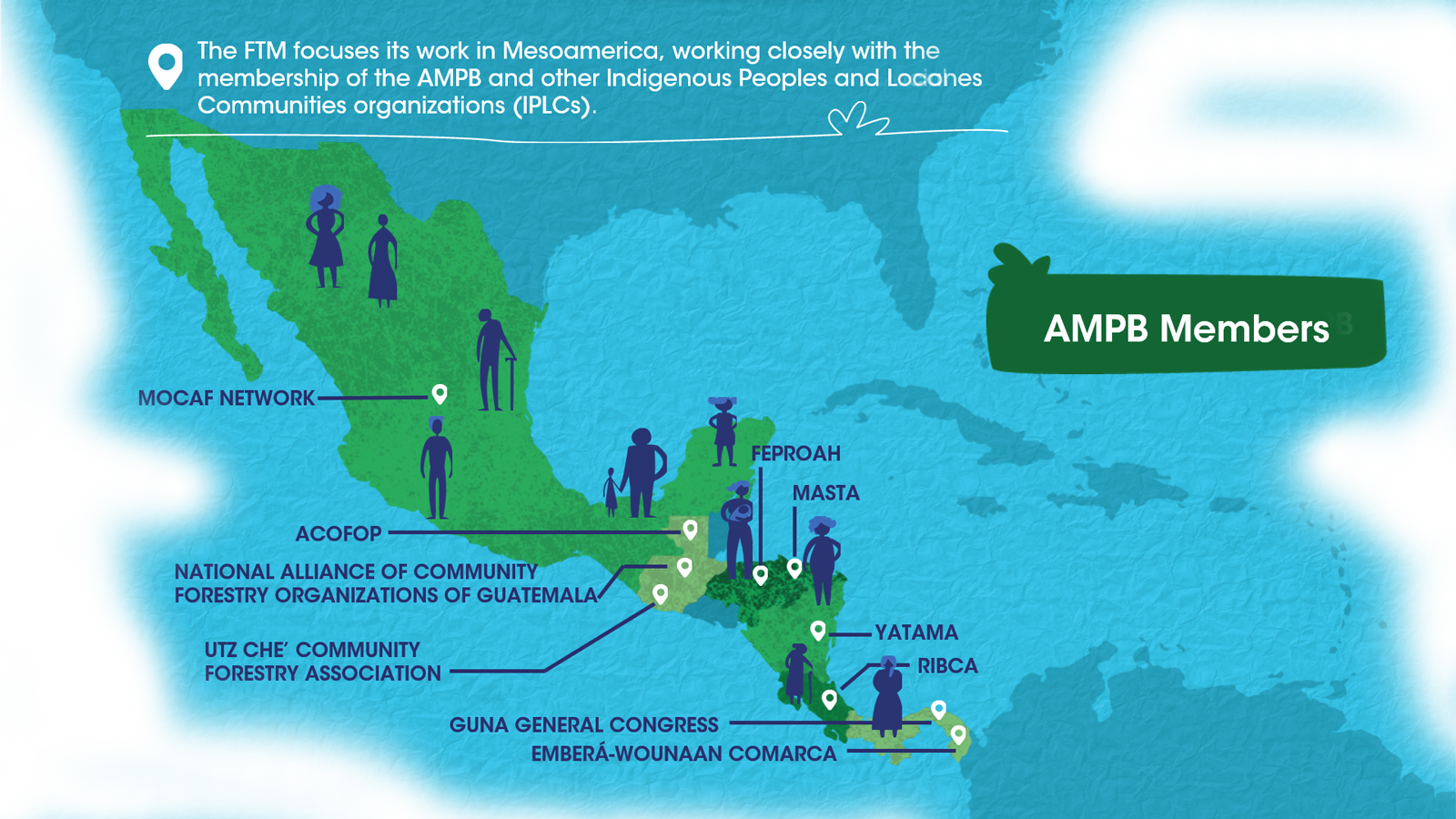
Rationale
According to a study conducted by Rainforest Foundation Norway1, by 2021, less than 1% of global climate finance has reached Indigenous Peoples and Local Communities (IPLCs) in the global south over the last ten year.
This is not news to us, as we have directly experienced the fact that little international climate and nature protection funding has reached our local Mesoamerican communities.
For this reason, we expressed our concern during the Global Climate Change Conference in Paris in 2015 (COP21) and, previously, at COP20 in Lima. In addition, we decided to take action and created our own Mesoamerican Territorial Fund.
OUR GOAL
We seek to contribute to the protection of biodiversity, the fight against climate change and the degradation of nature. We promote the strengthening of:
Governance.
Rights.
Indigenous and community entrepreneurship.
In this way we ensure the sustainability of the livelihoods, territories, forests, and other natural resources that Indigenous Peoples and local communities manage.

What do we finance?
The FTM supports strategic initiatives defined by the communities with the potential to be replicable, scalable or to become public policy.


By 2028 the FTM aims to:
A process that has already begun:
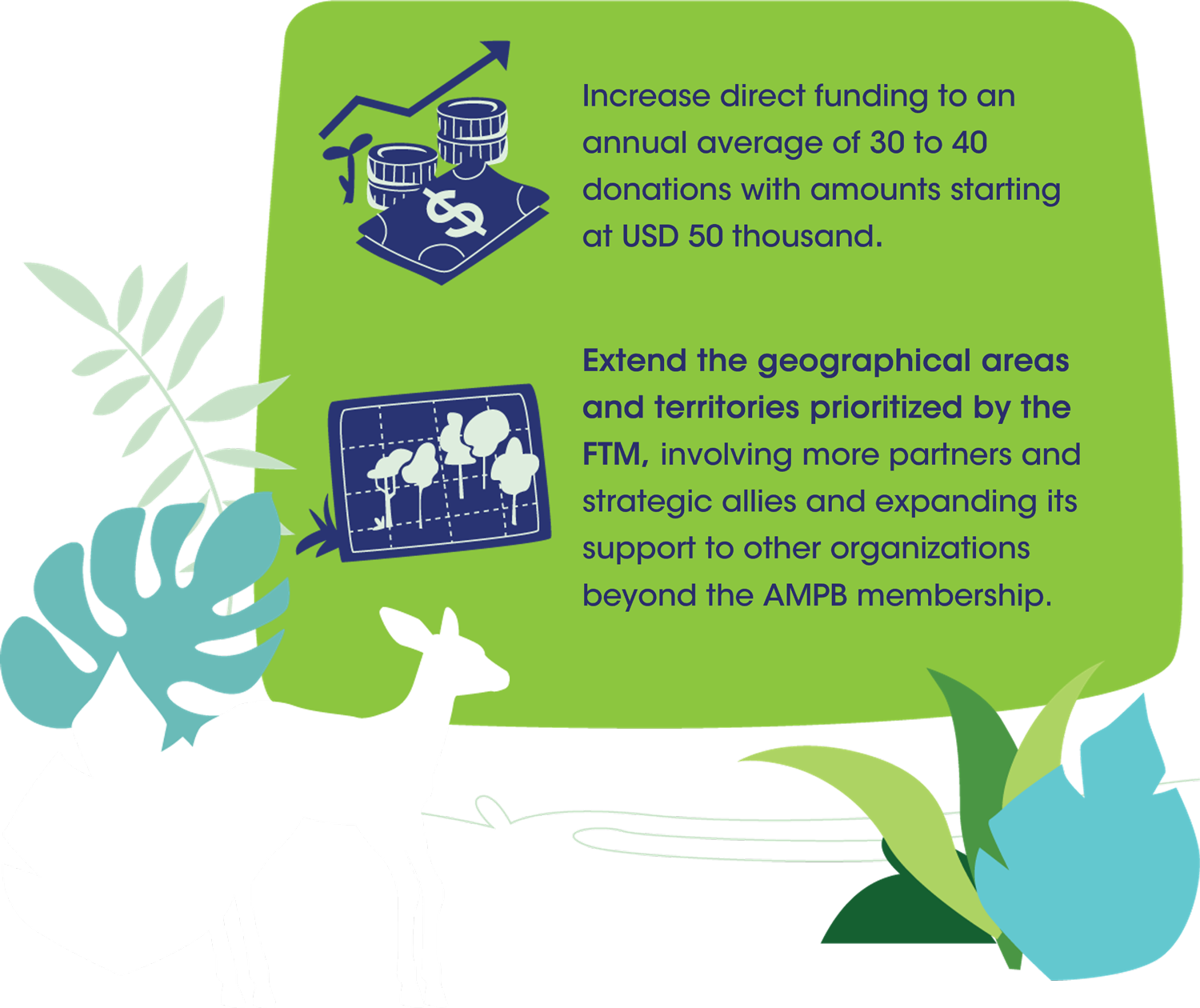
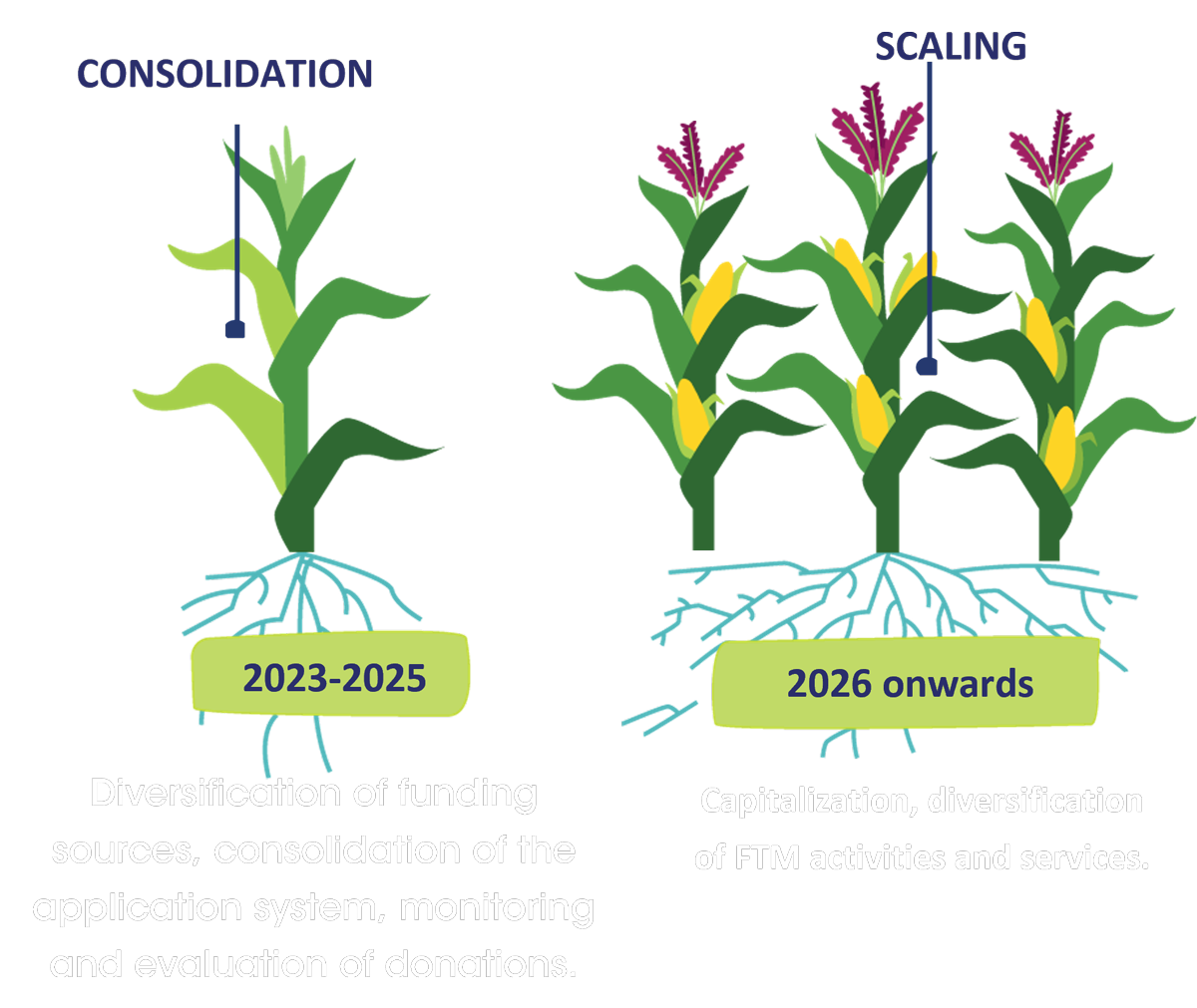
By 2028 the FTM aims to:

A process that has already begun:

How we work?
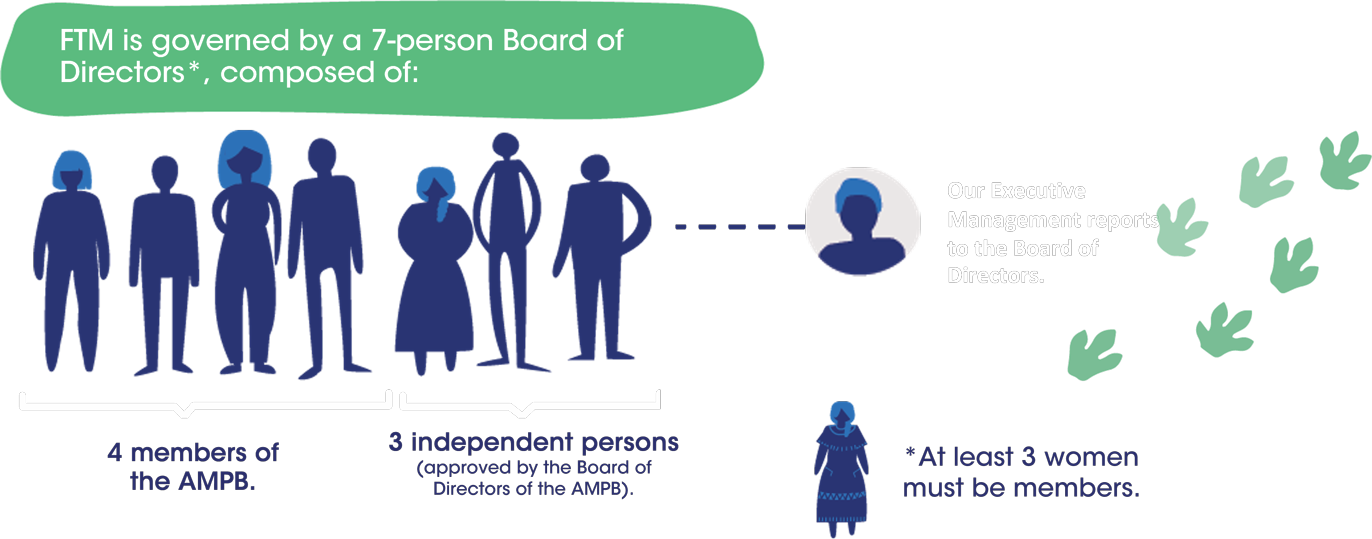
FTM Organizational Chart

How we work?

FTM Organizational Chart

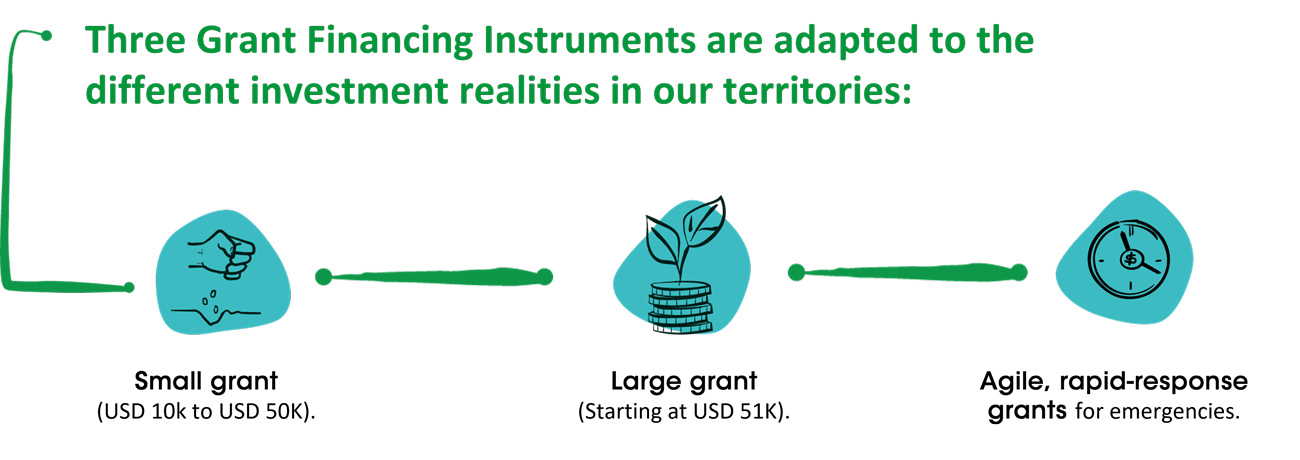

Financed initiatives
Women-driven forest garden entrepreneurship in Honduras.
Establishment of a community biointensive garden in Moskitia, Honduras.
Marketing of products at fairs of the Agroecological Farmers Network in Texcoco, Mexico.
Iniciativas financiadas
Women-driven forest garden entrepreneurship in Honduras.
Establishment of a community biointensive garden in Moskitia, Honduras.
Marketing of products at fairs of the Agroecological Farmers Network in Texcoco, Mexico.
Direct territorial financing:
Empowering Indigenous Peoples and Local Communities, protecting forests and biodiversity.
Increasing direct territorial financing is key to strengthening IPLC rights and territory-anchored strategies to combat climate change.
The Mesoamerican Alliance of Peoples and Forests (AMPB) manages 24% of the region’s forests, which holds 26% of the total carbon stored.
In Mesoamerica, to speak about forests and biodiversity implies speaking about the rights of Indigenous Peoples and Local Communities.
Direct territorial financing:
Empowering Indigenous Peoples and Local Communities, protecting forests and biodiversity.
Increasing direct territorial financing is key to strengthening IPLC rights and territory-anchored strategies to combat climate change.
In Mesoamerica, to speak about forests and biodiversity implies speaking about the rights of Indigenous Peoples and Local Communities.
Results | First cycle of projects up to 2022:
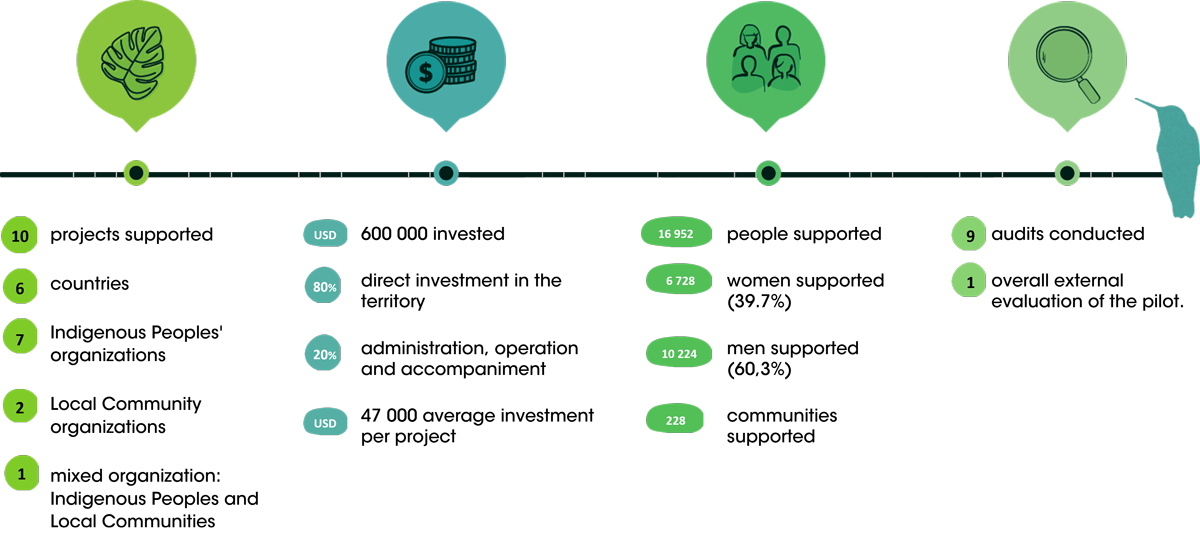
GOVERNANCE AND LAW
ACOFOP in Petén, Guatemala was supported to develop its advocacy process and achieved the renewal of 9 forestry concessions and the granting of two new concessions for 25 more years, respectively.
RIBCA in Costa Rica promoted the executive decree of the general consultation mechanism, a legal instrument for institutions to carry out consultations under the principle of free, prior and informed consent (FPIC).
ENTREPRENEURSHIPS
25 entrepreneurial ventures supported on food self-sufficiency
4 ventures supported on value-added timber products
6 enterprises supported on alternative tourism
8 community forestry initiatives supported.
GOVERNANCE AND LAW
ACOFOP in Petén, Guatemala was supported to develop its advocacy process and achieved the renewal of 9 forestry concessions and the granting of two new concessions for 25 more years, respectively.
RIBCA in Costa Rica promoted the executive decree of the general consultation mechanism, a legal instrument for institutions to carry out consultations under the principle of free, prior and informed consent (FPIC).
ENTREPRENEURSHIPS
25 entrepreneurial ventures supported on food self-sufficiency
4 ventures supported on value-added timber products
6 enterprises supported on alternative tourism
8 community forestry initiatives supported.
Challenges
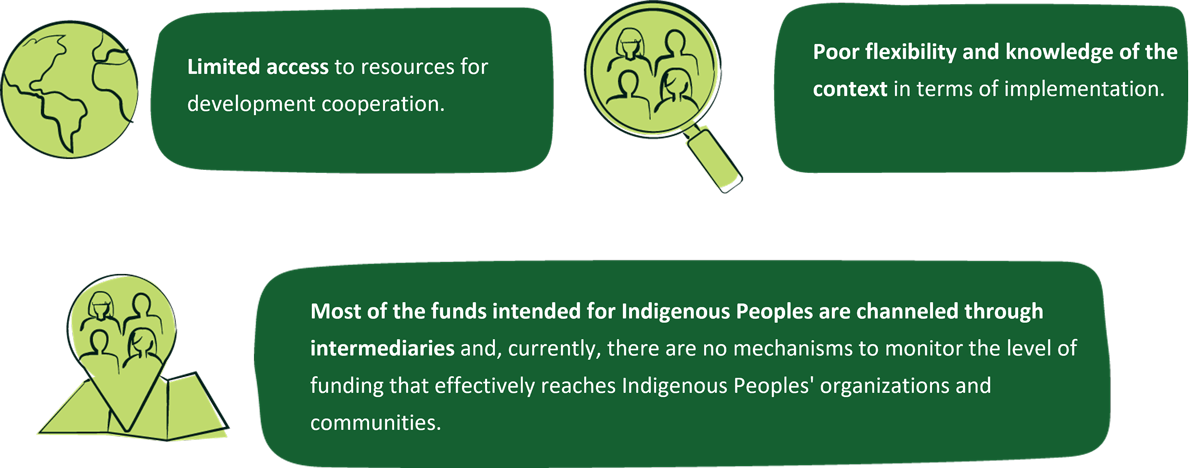
Opportunities
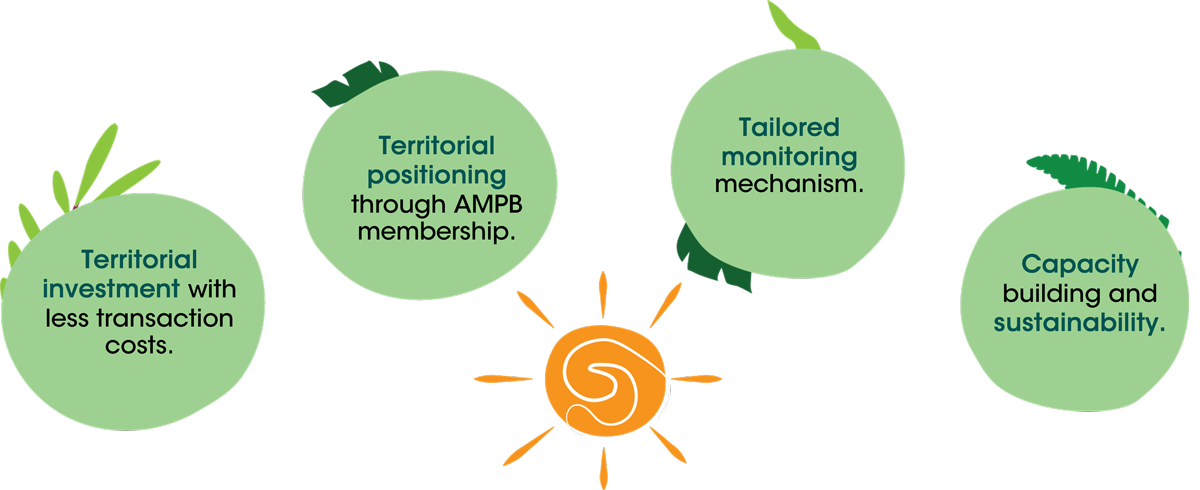
Opportunities

Grievance Mechanism:
FTM offers a Grievance Mechanism, with the purpose of establishing a continuous communication channel to provide timely responses to interested parties, such as individuals, groups or communities, who may experience an unfavorable impact on the implementation of grants, or have concerns regarding compliance with social safeguards. To express your concerns or discomfort, or to provide feedback and/or request information, please contact:
